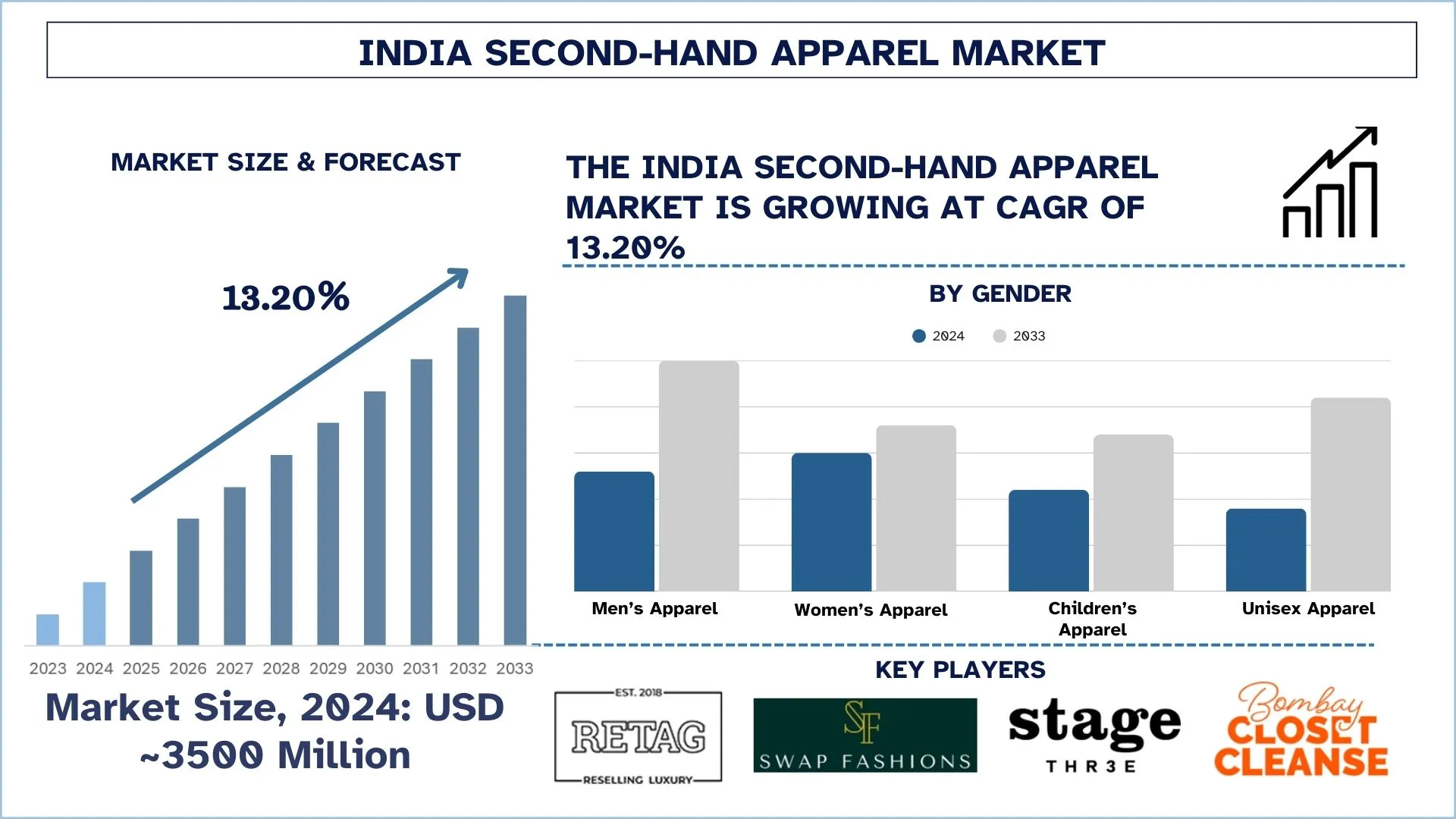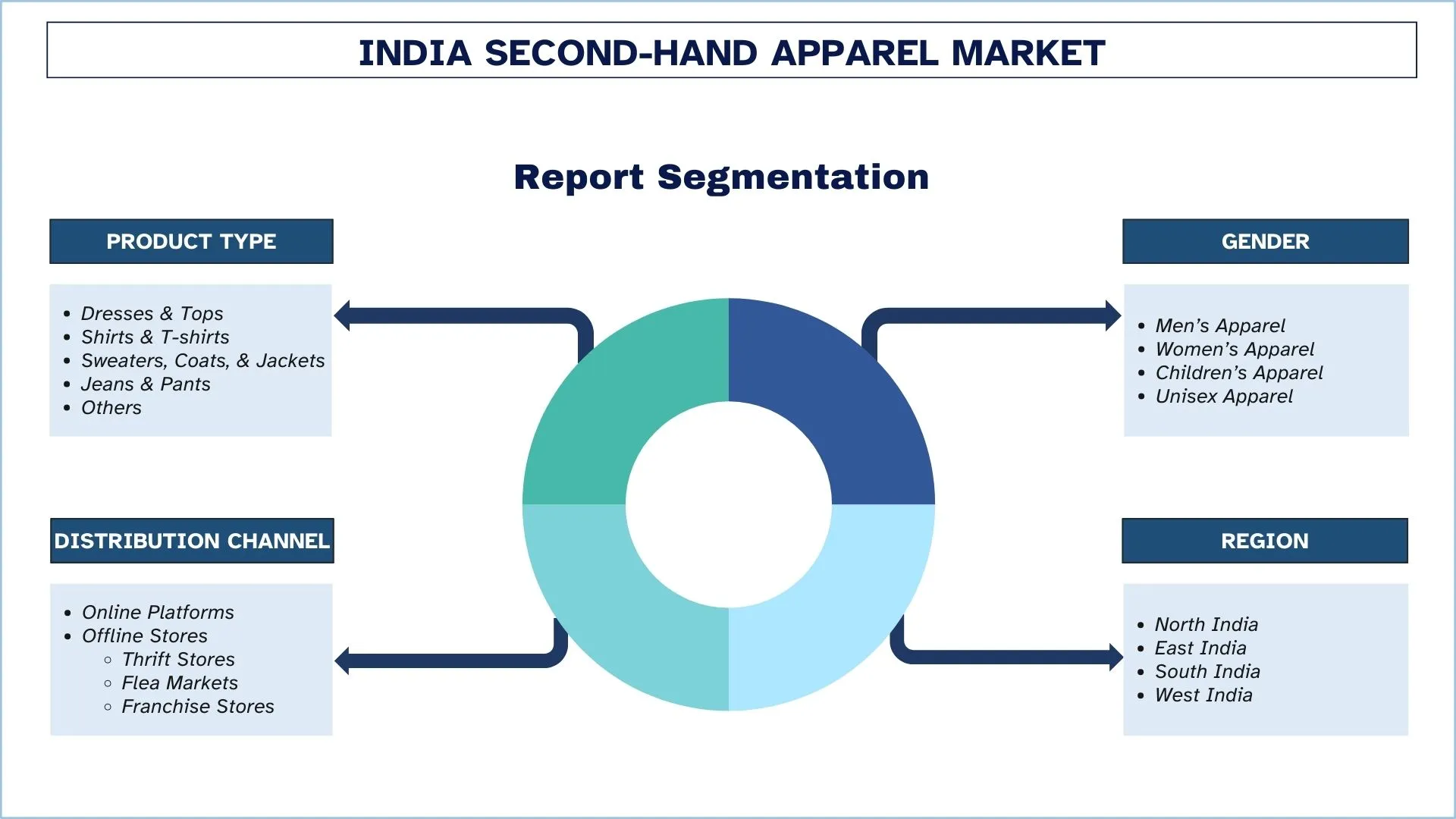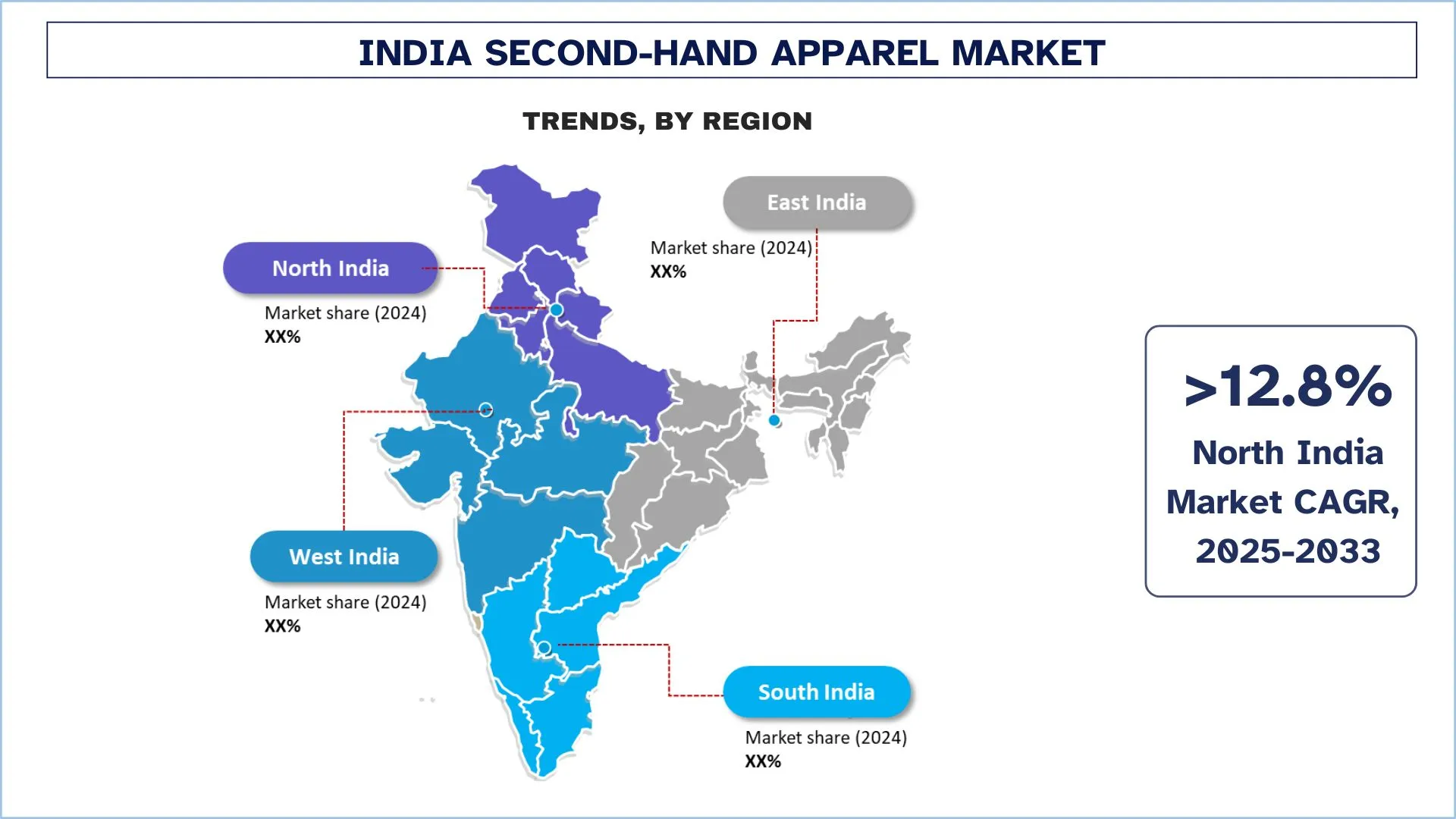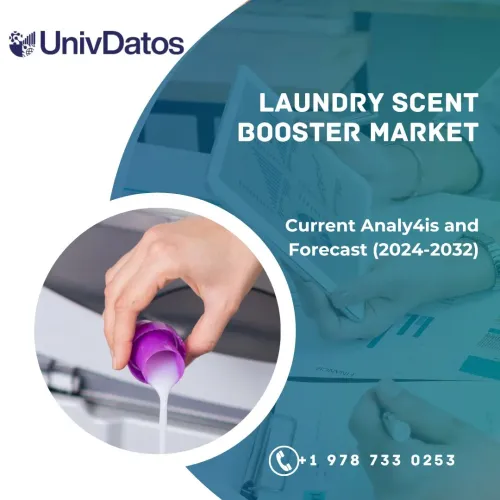- Home
- About Us
- Industry
- Services
- Reading
- Contact Us
India Second-Hand Apparel Market: Current Analysis and Forecast (2025-2033)
Emphasis on Product Type (Dresses & Tops, Shirts & T-shirts, Sweaters, Coats, & Jackets, Jeans & Pants, Others); Gender (Men’s Apparel, Women’s Apparel, Children’s Apparel, Unisex Apparel); Distribution Channel (Online Platforms, Offline Stores {Thrift Stores, Flea Markets, Franchise Stores}) and Region/Country

India Second-Hand Apparel Market Size & Forecast
The India Second-Hand Apparel Market was valued at USD ~3500 million in 2024 and is expected to grow to a strong CAGR of around 13.20% during the forecast period (2025-2033F), owing to the growing awareness of sustainable fashion.
Second-Hand Apparel Market Analysis
Second-hand clothing is defined as garments that are used before and are bought in new forms, such as from stores selling vintage clothes, online fashion, and outlets that sell second-hand items. Such clothing may be slightly worn, old, or even new with the tags, but cheaper than when they were first put on the market. Its concept entails cost-effectiveness, durability, and an environmentally friendly strategy since the lifespan of the clothes would be elongated, thus avoiding the constant manufacturing of textiles.
To boost production in India, many companies in the consumer market for second-hand wearable garments in India are adopting e-commerce, mobile apps, and social media to target young consumers. Some are opening curated, branded, and premium pre-owned sections to appeal to the urban youth, while others share content created by influencers to socialize thrifting. They are also adopting hygiene assurance messages for consumers about the brand and its safety, reconciling and/or creating contactless authentication features for both physical and electronic access to the brand and the environment, and adopting eco-friendly packaging to expand their business in metros and tier 2 cities.
On February 7, 2025, Swap Fashions, India’s leading platform for pre-owned luxury clothes, transformed the way fashion-conscious consumers shop for designer apparel. By offering a curated selection of pre-owned clothes from global fashion houses at affordable prices, Swap Fashions is making luxury fashion more accessible while promoting sustainability.
India Second-Hand Apparel Market Trends
This section discusses the key market trends that are influencing the various segments of the India Second-Hand Apparel market, as found by our team of research experts.
Pre-Owned Ethnic & Wedding Wear Demand
The popularity of purchasing used ethnic and wedding wear is on the increase in India because, usually, these clothes are expensive and are hardly worn. Having lehengas, sarees, and sherwanis rented or buying the ones that have been used earlier has become acceptable for the consumers, especially the brides and grooms. Nowadays, customers can choose between suggested lists of dresses on the internet or in online shops of specialized second-hand clothing stores or numerous shops designed for selling wedding things at lower costs. This can be attributed to the new societal trend that is promoting practicality in the choice of traditional wear. It also opens an opportunity to wear exclusive fashion accessories and clothes, but not committing one’s pocket for the long term.
Second-Hand Apparel Industry Segmentation
This section provides an analysis of the key trends in each segment of the India Second-Hand Apparel market report, along with forecasts at the regional and state levels for 2025-2033.
Dresses & Tops Category Dominates the Second-Hand Apparel Market.
Based on product type, the market is segmented into dresses & tops, shirts & t-shirts, sweaters, coats & jackets, jeans & pants, and others. Among these, the dresses & tops market is leading the market in 2024. Among all the apparel items, the dresses and tops are usually bought and sold often in the second-hand apparel market of India. The need to emulate celebrities’ fashion by wearing their replicas at reasonable prices increases the sales of second-hand dresses and tops. Social media and the culture of the influencer make this trend even more desirable among young people. Since access to such fashion through online thrift stores is convenient, the markets expand rapidly.
Women’s Apparel Category Dominates the Second-Hand Apparel Market.
Based on gender, the market is segmented into men’s apparel, women’s apparel, children’s apparel, and unisex apparel. Among these, the women’s apparel segment is the largest contributor to the second-hand apparel industry in 2024. Women’s clothes are predominant in the global second-hand clothing market mainly because of the greater variety of clothing they require and the faster turnover rates. Similarly, ethnic wear, western casual wear, and maternity clothing are the most popular categories among the buyers. Fashion companies are appealing to this segment by offering precisely selected items, clothes in various sizes, and size/ style recommendations. There is yet another positive trend that women are more conscious about sustainable and cheap clothes, garments.

North India is expected to grow at a considerable rate during the forecast period.
North India is the largest hub of second-hand apparel markets in India, followed by cities such as Delhi, Panipat, and Ludhiana. Panipat is one of the foremost hubs for imported used garments, as distribution and wholesaling of the garments take place in the region. Thus, the region has a well-developed resale mechanism due to informal sectors as well as established new digital reselling platforms. Moreover, prominent Delhi flea markets like Sarojini Nagar, Lajpat Nagar, Janpath, etc. function as some of the major markets that help students and young professionals to buy trendy goods available at second-hand affordable prices. Companies ensure the supply’s efficiency using sorting centers located in geographic regions near major groceries and convenience stores in cities.

India Second-Hand Apparel Competitive Landscape
The India Second-Hand Apparel market is competitive, with several global and international market players. The key players are adopting different growth strategies to enhance their market presence, such as partnerships, agreements, collaborations, new product launches, geographical expansions, and mergers and acquisitions.
Top India Second-Hand Apparel Companies
Some of the major players in the market are RETAG APPARELS, Swap Fashions LLP, Stage3 (Cosmo Brands Private Limited), FLYROBE, Kandla Exim Pvt Ltd, Shiv Enterprises, Kuro (Naamo Clothing Private Limited), Bombay Closet Cleanse, The Mainstreet Marketplace, and The Thrift Kart.
Recent Developments in the Second-Hand Apparel Market
On February 3, 2025, Chinese fast-fashion retailer Shein re-entered the Indian market through a partnership with Reliance Retail, nearly five years after its ban in 2020. The new app, named Shein India Fast Fashion, will initially deliver only in Delhi NCR, Mumbai, and Bengaluru but is planning for a nationwide expansion.
India Second-Hand Apparel Market Report Coverage
Report Attribute | Details |
Base year | 2024 |
Forecast period | 2025-2033 |
Growth momentum | Accelerate at a CAGR of 13.20% |
Market size 2024 | USD ~3500 Million |
Regional analysis | North India, South India, East India, and West India |
Major contributing region | West India is expected to grow at the highest CAGR during the forecasted period. |
Companies profiled | RETAG APPARELS, Swap Fashions LLP, Stage3 (Cosmo Brands Private Limited), FLYROBE, Kandla Exim Pvt Ltd, Shiv Enterprises, Kuro (Naamo Clothing Private Limited), Bombay Closet Cleanse, The Mainstreet Marketplace, and The Thrift Kart. |
Report Scope | Market Trends, Drivers, and Restraints; Revenue Estimation and Forecast; Segmentation Analysis; Demand and Supply Side Analysis; Competitive Landscape; Company Profiling |
Segments Covered | By Product Type; By Gender; By Distribution Channel; By Region/Country |
Reasons to Buy India Second-Hand Apparel Market Report:
The study includes market sizing and forecasting analysis confirmed by authenticated key industry experts.
The report briefly reviews overall industry performance at a glance.
The report covers an in-depth analysis of prominent industry peers, primarily focusing on key business financials, type portfolios, expansion strategies, and recent developments.
Detailed examination of drivers, restraints, key trends, and opportunities prevailing in the industry.
The study comprehensively covers the market across different segments.
Deep dive regional level analysis of the industry.
Customization Options:
The India Second-Hand Apparel market can further be customized as per the requirements or any other market segment. Besides this, UnivDatos understands that you may have your own business needs; hence, feel free to contact us to get a report that completely suits your requirements.
Table of Content
Research Methodology for the India Second-Hand Apparel Market Analysis (2023-2033)
We analyzed the historical market, estimated the current market, and forecasted the future market of the India Second-Hand Apparel market to assess its application in major regions in India. We conducted exhaustive secondary research to gather historical market data and estimate the current market size. To validate these insights, we carefully reviewed numerous findings and assumptions. Additionally, we conducted in-depth primary interviews with industry experts across the Second-Hand Apparel value chain. After validating market figures through these interviews, we used both top-down and bottom-up approaches to forecast the overall market size. We then employed market breakdown and data triangulation methods to estimate and analyze the market size of industry segments and sub-segments.
Market Engineering
We employed the data triangulation technique to finalize the overall market estimation and derive precise statistical numbers for each segment and sub-segment of the India second-hand Apparel market. We split the data into several segments and sub-segments by analyzing various parameters and trends, including product type, gender, distribution channel, and regions within the India Second-Hand Apparel market.
The Main Objective of the India Second-Hand Apparel Market Study
The study identifies current and future trends in the India Second-Hand Apparel market, providing strategic insights for investors. It highlights regional market attractiveness, enabling industry participants to tap into untapped markets and gain a first-mover advantage. Other quantitative goals of the studies include:
- Market Size Analysis: Assess the current market size and forecast the market size of the India Second-Hand Apparel market and its segments in terms of value (USD).
- Second-Hand Apparel Market Segmentation: Segments in the study include areas of product type, gender, distribution channel, and regions.
- Regulatory Framework & Value Chain Analysis: Examine the regulatory framework, value chain, customer behavior, and competitive landscape of the Second-Hand Apparel industry.
- Regional Analysis: Conduct a detailed regional analysis for key areas such as North India, South India, East India, and West India.
- Company Profiles & Growth Strategies: Company profiles of the Second-Hand Apparel market and the growth strategies adopted by the market players to sustain in the fast-growing market.
Frequently Asked Questions FAQs
Q1: What is the India Second-Hand Apparel market’s current market size and growth potential?
The India Second-Hand Apparel market was valued at USD ~3500 million in 2024 and is expected to grow at a CAGR of 13.20% during the forecast period (2025-2033), driven by increased urbanization and disposable income.
Q2: Which segment has the largest share of the India Second-Hand Apparel market by product type?
The Dresses & Tops segment holds the largest market share due to its high demand among urban women consumers, consistent resale value, and easy integration with modern styling trends. The rising popularity of Western fashion in metros and Tier-1 cities also contributes significantly to the segment’s dominance.
Q3: What are the driving factors for the growth of the India Second-Hand Apparel market?
The drivers for the India Second-Hand Apparel market are rising youth demand for affordable fashion, growing awareness of sustainable fashion, increased urbanization and disposable income, expansion of e-commerce & thrift apps, social media influence on second-hand fashion, the popularity of branded apparel at lower cost, and circular economy push by government & NGOs.
Q4: What are the emerging technologies and trends in the India Second-Hand Apparel market?
Key trends include AI-powered product recommendations, blockchain-based authentication of branded items, and mobile-first platforms that enhance user accessibility. Technologies like image recognition for auto-tagging apparel and virtual try-on features are improving the resale experience. There's also an increasing use of eco-friendly packaging and digitized quality checks.
Q5: What are the key challenges in the India Second-Hand Apparel market?
Challenges include consumer stigma around used clothing in Tier-2 and Tier-3 cities, limited organized players leading to supply inconsistency, and quality assurance concerns. Logistics complexities, lack of clear return policies, and hygiene-related perceptions also hamper market scalability for new entrants.
Q6: Which region dominates the India Second-Hand Apparel market?
North India dominates the India Second-Hand Apparel market, driven by large urban centers such as Delhi NCR, Chandigarh, and Jaipur. These cities have a high concentration of fashion-conscious youth, thriving college populations, and a strong presence of resale and thrift platforms. Additionally, North India is a major hub for second-hand clothing imports and wholesale distribution, supported by well-established local markets and growing digital adoption. The region’s cultural shift toward sustainable and affordable fashion is further boosting demand.
Q7: Who are the key players in the India Second-Hand Apparel market?
Leading Companies in India Second-Hand Apparel
• RETAG APPARELS
• Swap Fashions LLP
• Stage3 (Cosmo Brands Private Limited)
• FLYROBE
• Kandla Exim Pvt Ltd
• Shiv Enterprises
• Kuro (Naamo Clothing Private Limited)
• Bombay Closet Cleanse
• The Mainstreet Marketplace
• The Thrift Kart
Q8: What is the role of e-commerce and social commerce in shaping the India Second-Hand Apparel market?
E-commerce and social commerce platforms are key drivers, allowing businesses to scale rapidly while tapping into younger demographics. Instagram resellers, peer-to-peer platforms, and niche thrift websites are helping normalize second-hand purchases, increasing customer trust and expanding reach beyond metros.
Q9: What investment or partnership opportunities exist in the India Second-Hand Apparel ecosystem?
There are growing opportunities in tech-enabled resale platforms, B2B supply chain partnerships, warehouse automation, and sustainable textile recycling units. Investors are particularly eyeing scalable business models focused on youth segments, influencer-driven commerce, and franchisee resale formats targeting Tier-1 and Tier-2 cities.
Related Reports
Customers who bought this item also bought










